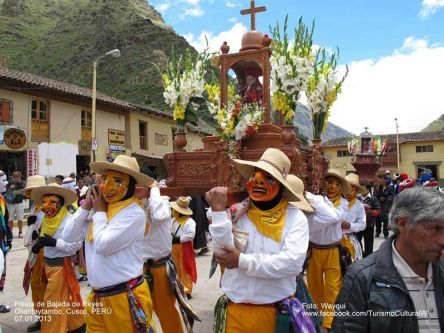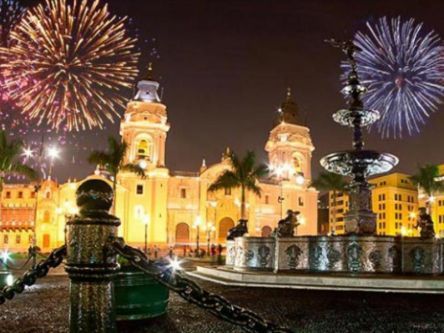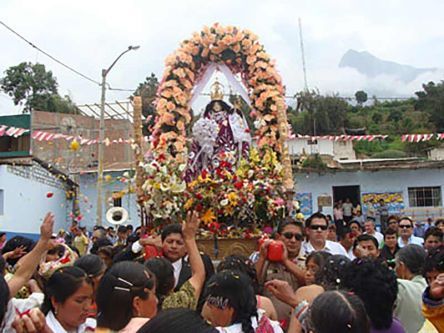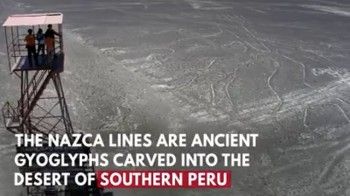Hi am Bonface from kenya am looking for a job in hospitality industry house keeping with experience of 7 yrs can I get
- This commment is unpublished.@Bonface LuchomboHello Bonface,with tourism picking up again there is an increasing number of jobs in the hospitality industry in Peru. However, be aware that regulations for employing foreigners are quite strict in Peru.As there are many Peruvians well qualified for lower-income jobs, such as house keeping, and these can be employed right away without any red tape, finding a company willing to offer you a job could be challenging - but not impossible.So, if you really want to work in Peru, you first must find a company willing to employ you and sponsor your visa. As you, as a Kenian passport holder, can't travel to Peru visa-free, once you have a contract your employer, a lawyer or other person in Peru must apply for your work visa.As soon as the visa is approved you must pick it up at a Peruvian consulate (in Africa there are only a few, for example, in South Africa, Egypt, Ghana, Algeria and Morocco) and only then can travel to Peru.I wish you all the best.GreetingsEva
- This commment is unpublished.@Sunflower Can I apply once I reach in peru with visit visa
- This commment is unpublished.@Bonface LuchomboYes, you could enter Peru with a tourist visa and then apply for a work visa once you are in Peru.However, be aware of the following:As a Kenyan passport holder you cannot enter Peru visa-free. You first must apply for a tourist visa at a Peruvian consulate (Peru does not offer online tourist visa applications).On the website of the Peruvian Ministry of Foreign Affairs (RREE) you find a world map showing all Peruvian consulates abroad. Just click on a marker and the address, phone number, e-mail and - if available - website of the consulate appears.Especially in Africa (and Asia), where the residents of most countries have to apply for a tourist visa before coming to Peru, Peruvian consulates are scarce, website aren’t up-to-date and e-mails often aren't answered. So, finding the correct consulate, getting information and applying for the tourist visa can be quite a challenge. The Peruvian Ministry of Foreign Affairs unfortunately doesn't consistently publish which consulates have jurisdiction over which regions/countries. Therefore, as there is no Peruvian consulate in Kenya, try to get in contact with the one in Ghana or South Africa and ask if they can help.Required documents to apply for a tourist visa include, but may not be restricted to:
- Application form
- Valid passport
- Round-trip ticket
- Hotel reservation, tourist package reservation or invitation letter
- Proof of sufficient funds
- Passport photos
- Proof of legal residency in the area or country under the consulates jurisdiction
- Receipt for paid application fee
Please be aware that the consulate, where you apply, will invite you to a personal interview.If you manage to get a tourist visa for Peru, you fly to Peru and enter as a tourist. Be aware that even if your tourist visa shows that you are allowed a stay of 180 days you most probably only get 90 days when you enter. As the visa most probably is a multiple entry visa you could leave the country after 90 days and then return. But Peru's neighboring countries all require a visa for Kenyans, so here you have another hurdle to conquer.And in the 90 days you are allowed to stay in Peru, it is nearly impossible to find a job and a company sponsoring a work visa, prepare all documents to apply for a work visa and then apply before your time as a tourist runs out.So, if you want to enter as a tourist and then change to a work visa once you are in Peru, I highly recommend to find an employer and have a work contract before coming to Peru and to bring all required documents from your home country - in your case just your criminal record check. Be aware that - as Kenya isn't part of the Hague Apostille Convention - the criminal record check must be certified by the issuing authority in Kenya, then notarized by a Kenyan notary, followed by an authentication by the Kenyan Ministry of Foreign Affairs (MFA) and finally legalized by a Peruvian consulate.All the bestEva



































